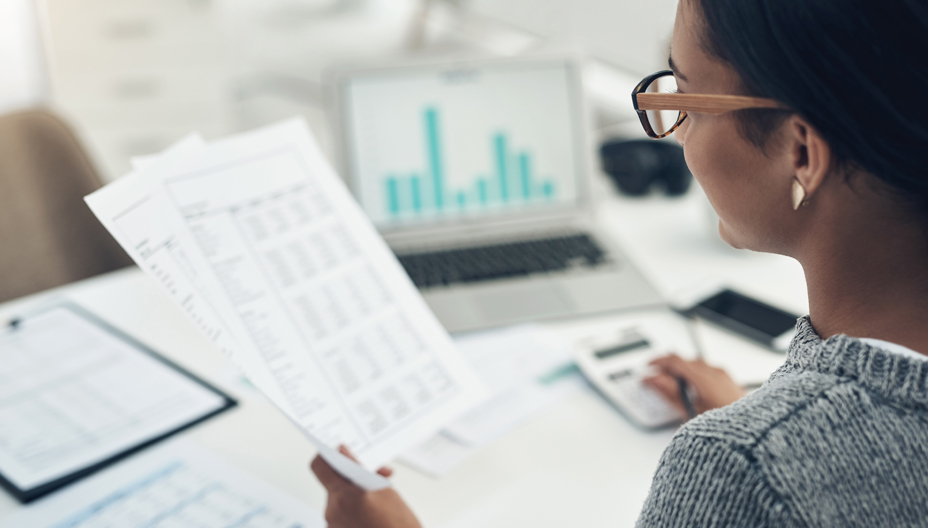Learn
Understanding Dividend Stocks

With the 2022 market performing as it has, many investors are wondering if there are any potentially safer, more stable options to add to their portfolios.
If you're interested in dividend stocks, you aren't alone. Investors have recently put an estimated $43 billion into dividend-paying funds.1 If you're curious about the advantages of dividend-paying stocks in the current market, read on.
1. What is a dividend and how does it work?
A dividend is money that a company pays to its shareholders. The amount of the dividend is based on the company's profits. Companies typically pay out dividends on a quarterly or annual basis. Sometimes, when business is booming, they pay an additional, special dividend to shareholders.
2. What comes after a dividend payment?
When a shareholder receives a dividend, they have one of two choices:
- Reinvest the dividend back. This can be helpful to an investor in the longer-term because they benefit from compounded returns.
- Take the dividend as a cash payout. This is a good choice for the investor who isn't interested in reinvesting — or who wants or needs to spend the dividend.
3. What is a dividend yield?
A dividend yield is a percentage that lets shareholders know how much of a dividend to expect. To calculate the dividend yield,2 divide the total amount of dividends paid annually to the holder of one stock by the current price of the investment at the beginning of that year.
 While higher dividend yields aren't always an indicator of company health, dividend paying companies are often more stable and established.
While higher dividend yields aren't always an indicator of company health, dividend paying companies are often more stable and established.
4. What are some benefits to investing in dividend stocks in a volatile market?
While higher dividend yields aren't always an indicator of company health, dividend paying companies are often more stable and established — a sign that they may be more likely to withstand an economic downtown. Companies like AT&T (T) and mall property conglomerate Simon Property Group (SPG) are two such examples. Energy companies, such as Exxon Mobil (XOM), also pay dividends.
In a volatile market, dividends can help hedge an investment portfolio against inflation. The income from dividends can also help offset declines in stock values elsewhere.
But it's not just the steady stream of dividend payments that investors are banking on. Since it's typically more stable, established companies that pay dividends, investors are also speculating that, under the right market conditions, the stock price may increase.
5. What are some downsides to dividend stocks?
While dividend stocks possess many positives, there are still some practical matters to consider before investing. For starters, if you receive significant dividend payouts, you may be subject to the Net Investment Income Tax (NIIT) and therefore required to pay an estimated tax to avoid a penalty.3
Dividend stocks are also still susceptible to market volatility, since both the dividend yield and the underlying stock price can fall. And finally, a company can choose to eliminate a dividend entirely. For example, in 2020, leisure and entertainment companies, such as Carnival Cruise Lines and Las Vegas Sands, suspended their dividend payouts indefinitely citing significantly less demand for their products and services during the global shutdown.4
During times that feel uncertain or pivotal, speaking to your financial professional about the right kinds of investments can mean the difference between peace of mind and sitting up at night worrying. Talk to a Synovus financial advisor to learn more about dividend stocks — and other types of investments — that can help fund your future goals and dreams, and assist you in the present.
Important disclosure information
This content is general in nature and does not constitute legal, tax, accounting, financial or investment advice. You are encouraged to consult with competent legal, tax, accounting, financial or investment professionals based on your specific circumstances. We do not make any warranties as to accuracy or completeness of this information, do not endorse any third-party companies, products, or services described here, and take no liability for your use of this information.
- Kate Dore, "Investors have put $43 billion in dividend-paying fundsthis year. Before you 'chase dividends,' here's what to know(cnbc.com)," CNBC, published July 19, 2022, accessed August 23, 2022. Back
- MarketBeat, "Dividend Yield Calculator | Calculate the Dividend Yieldof Any Stock (marketbeat.com)," accessed August 26, 2022. Back
- Irs.gov, "Topic No. 404 Dividends", accessed August 25, 2022. Back
- Dogs of the Dow, "Dividend Suspension Tracker," accessed August 23, 2022. Back
Do you have questions or ideas?
Share your thoughts about this article or suggest a topic for a new one
